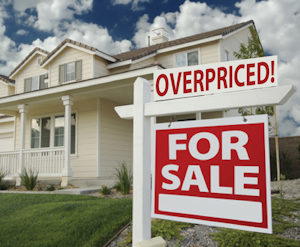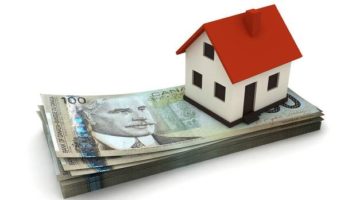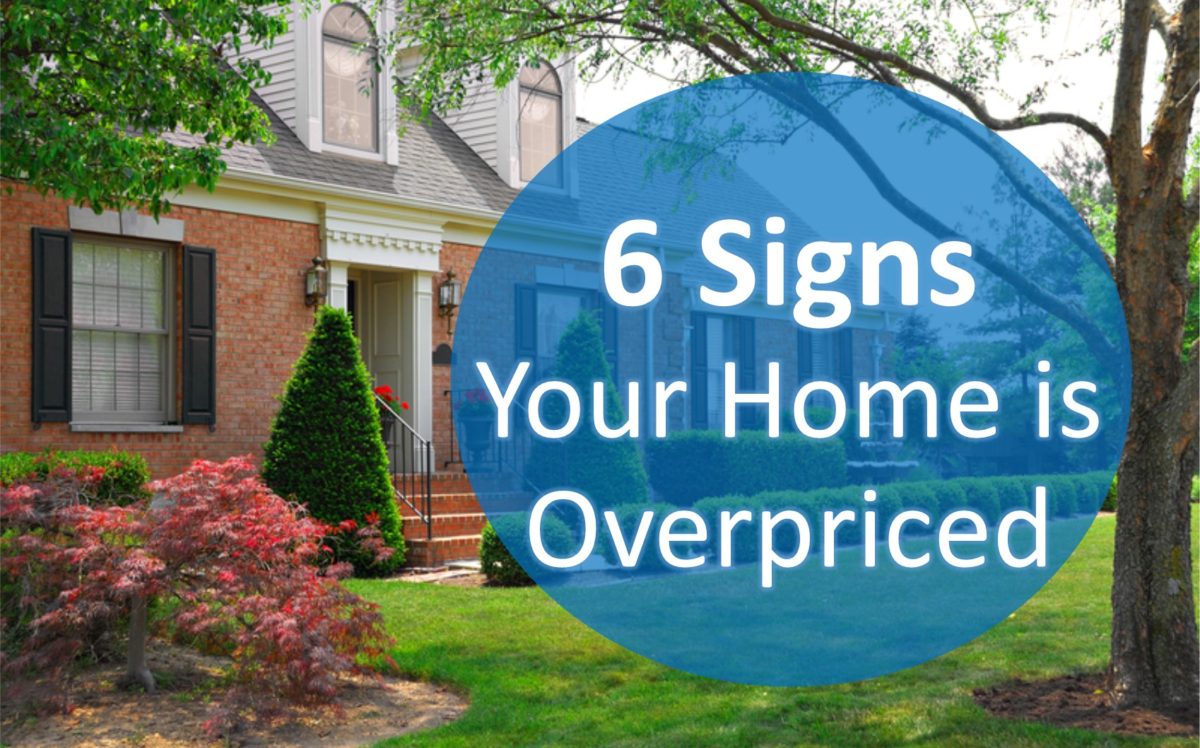The effect of overpricing your home.
A lot of home sellers may think it is a wise strategy to price their home higher than the market can support because in the end they will solicit offers and begin negotiations form a higher price point. They often feel this will give them advantage during the negotiation process. Unfortunately the most common and costly mistake that a seller can make is setting an unrealistically high asking price. Every seller wants to receive the highest price possible for their home, but pricing your home outside of a reasonable market value will only end up costing the seller money, time and grief.
What Typically Happens with Overpricing?
Fewer Potential Buyers – By pricing your home outside the market a seller will actually prevent it from even being seen by a certain percent of potential buyers who may have been interested in buying the home. Most of the more savvy buyers today will do extensive research on the local market before even contacting an agent to represent them. Buyers will search for available homes online sometimes for months before contacting an agent to buy a home. While doing this they will most often set a price range to limit the number of listings they are looking at. If the home priced outside of those ranges by as much as a few thousand dollars, those potential buyers will never even know the home is available.
Lack of Showings – When an agent sees a home that is overpriced the agent will often not even show those homes because he does not want to waste his time or that of his clients.
Helping Sell Competing Listings – Although this may not cross the mind of a home seller, overpricing your home within its market can actually help the competition. The overpriced homes higher asking price will make other nearby homes of similar size and condition look like much better values when compared to yours. Real estate agent often use overpriced competition to help sell their own listings by simply showing how well they are priced.
Stagnation & Stigmatization – If a home is priced higher than what potential buyers are willing to pay, it runs the risk of just sitting on the market for a long period of time. As the home sits on the market for months and months it gаіnѕ a rерutаtіоn fоr bеіng “overpriced” within the real estate agents in the area. Once this happens, it is very difficult to remove that stigma and create interest in the home again. When the price eventually drops it will not have the same effect and typically it will be necessary to drop the price further than if the home was priced correctly within the market to begin with.
Negotiations – A high listing price can often be a warning sign for buyers that they will use for leverage during the negotiation process. When a home has a high asking price without home improvements or features to justify the difference buyers may assume the following.
- Seller or his Agent is not informed about the market
- Seller is not highly motivated
- May have a need for money and need to move
- Simply creating some bargaining room for negotiations
If the buyer believes any of these they will want to start “fishing” to determine hоw lоw оf a рrісе you will accept. On the other hand, if a home sits on the market for months as a result of overpricing, buyers may believe the seller may be becoming desperate. This can cause interested buyers to make lower offers as a result. These offers will typically be considered “low ball” offers by the seller.
Contributed by: Greg Clarke foremost expert Realtor and top real estate agent with Royal Lepage Kelowna, BC.
Call me with your Real Estate questions @ 250-869-9119 or gregclarke@royallepage.ca








